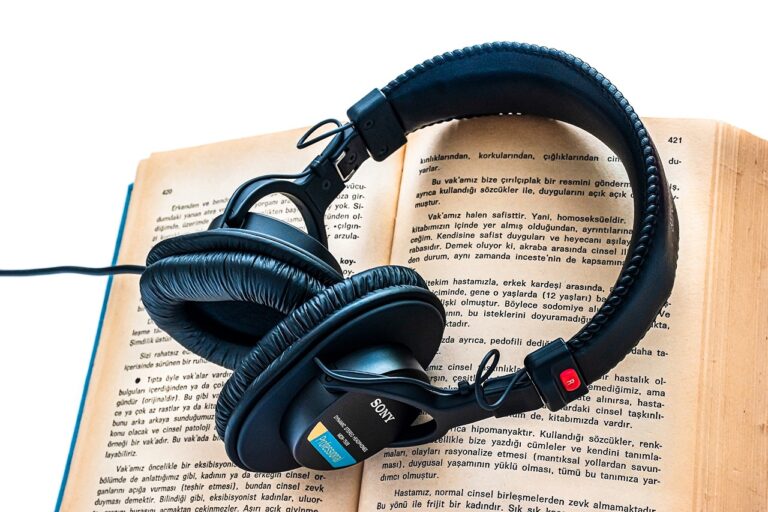The Role of Podcasts in Education and Content Creation: Lotusbook365, Welcome to play99exch, Allpannel
lotusbook365, welcome to play99exch, allpannel: In today’s digital age, podcasts have become increasingly popular as a means of both education and content creation. These audio shows cover a wide range of topics, from storytelling to interviews to educational content, making them a versatile tool for both educators and creators alike.
1. Accessibility and Convenience
One of the main benefits of podcasts in education is their accessibility and convenience. Unlike traditional textbooks or video content, podcasts can be listened to on-the-go, allowing students to learn while commuting, exercising, or even doing household chores. This convenience makes podcasts a valuable resource for students with busy schedules or those who prefer auditory learning.
2. Diverse Content
Podcasts cover a diverse range of topics, making them suitable for learners of all interests and backgrounds. From history to science to personal development, there is a podcast out there for everyone. Educators can use podcasts to supplement their lessons and provide additional perspectives on a subject, while creators can use them to share their expertise and connect with a wider audience.
3. Engaging Format
Podcasts are known for their engaging format, with hosts often using storytelling, interviews, or interactive discussions to convey information. This format helps to capture the listener’s attention and make the content more memorable. Educators can use this engaging format to make their lessons more interesting and interactive, while creators can use it to build a loyal following and create a sense of community with their listeners.
4. Cost-Effective
Creating a podcast is relatively cost-effective compared to other forms of content creation, such as video production or website development. With just a microphone and recording software, anyone can start a podcast and share their knowledge and expertise with the world. This low barrier to entry makes podcasts an accessible option for educators and creators looking to reach a wider audience.
5. Flexibility and Adaptability
Podcasts offer a level of flexibility and adaptability that other forms of content may not. Episodes can be easily updated or re-recorded to include new information or correct errors, making podcasts a dynamic and up-to-date resource for learners. Additionally, podcasts can be easily shared and distributed across multiple platforms, allowing educators and creators to reach a global audience with their content.
FAQs
Q: How can educators incorporate podcasts into their teaching?
A: Educators can use podcasts as supplemental material for their lessons, assign specific episodes for students to listen to, or even create their own podcasts to share course content and updates.
Q: How can creators monetize their podcasts?
A: Creators can monetize their podcasts through sponsorships, advertising, merchandise sales, or by offering premium content or exclusive access to listeners.
Q: Are podcasts a suitable learning tool for all age groups?
A: Yes, podcasts can be a valuable learning tool for learners of all ages, from elementary school students to lifelong learners. Educators and creators can tailor their content to suit different age groups and learning styles.
In conclusion, podcasts play a valuable role in education and content creation, offering accessibility, diverse content, engaging format, cost-effectiveness, flexibility, and adaptability. Whether you’re an educator looking to enhance your teaching methods or a creator looking to share your expertise with the world, podcasts provide a versatile and effective platform to reach a wider audience.







